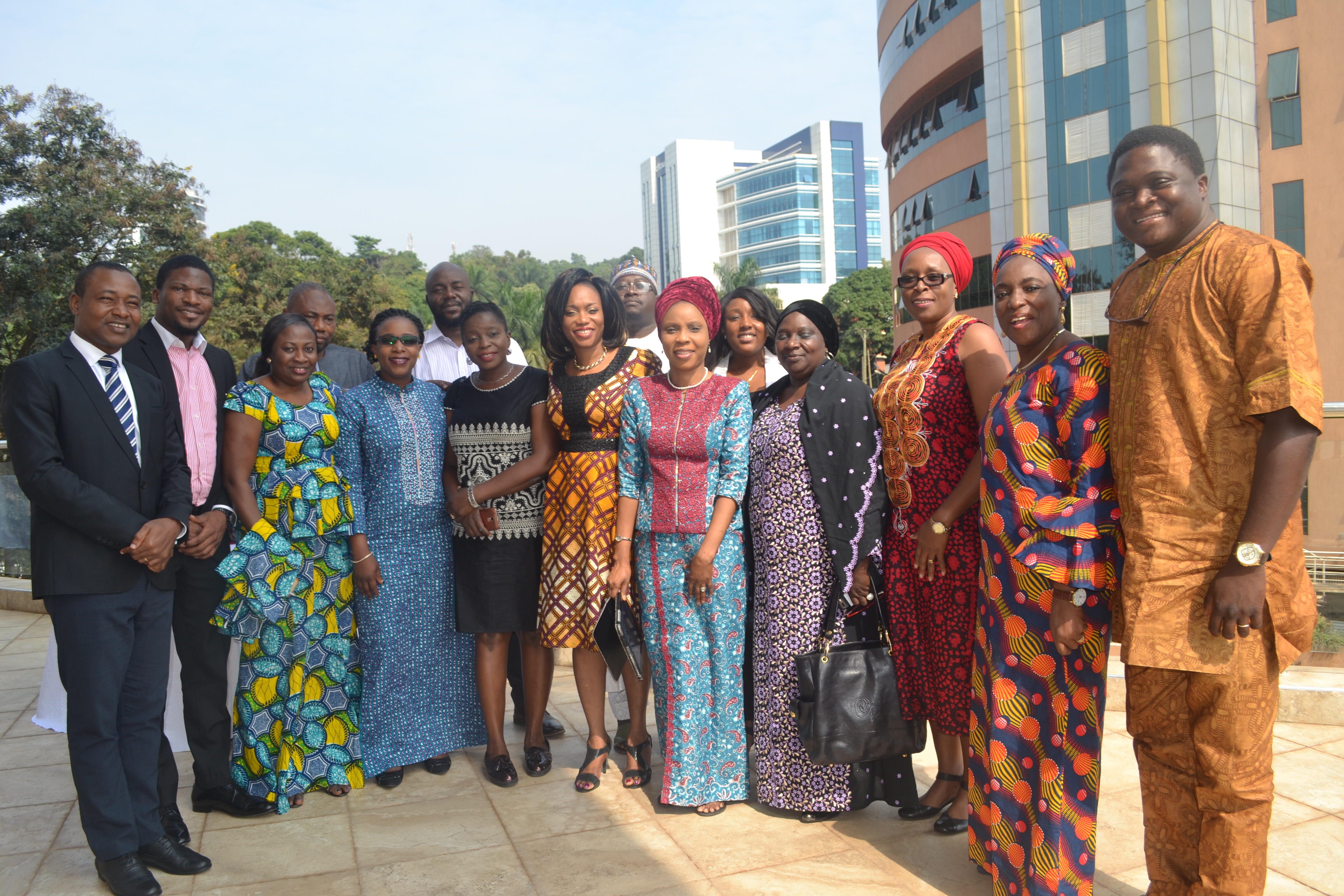Ministry of Health hosted a delegation from Nigeria to learn about Uganda’s experience with scaling up use of Sayana® Press, a new injectable contraceptive, August 8 - 12, 2017.
“UNFPA is supporting development and implementation of an appropriate plan for scale-up of coverage to ensure the country’s family planning coverage targets are achieved,” said UNFPA Uganda Deputy Representative Ms Miranda Tabifor while the visiting delegation from Nigeria together with officials from PATH, Ministry of Health, and the National Population Council.
UNFPA will support the government to scale up Sayana Press as an addition to the current family planning method mix to increase the choices available to women in Uganda, Ms. Tabifor added.
The visiting delegation from Nigeria were impressed with the progress made by UNFPA and partners: “I am impressed by the well-structured health system where the Village Health Teams are the lowest level of service delivery. The VHTs are critical to the success of Sayana press, reaching people in the communities,” said Dr. Adebimpe Olugbeminiyi Adebiyi who headed the delegation from the Federal Government of Nigeria’s Ministry of Health.
The introduction of Sayana Press comes against the backdrop of the country’s efforts to improve its family planning indicators. Almost three in ten women have an unmet need for family planning; they would like to use family planning to limit/space or stop births but are currently not using a family planning method.
Through the ‘Family Planning Costed Implementation Plan (2015-2020)’, Uganda has set a target of reducing unmet need for family planning to 10% and increasing modern contraceptive prevalence rate (mCPR) to 50% by 2020.
“Family planning is very important for the health and economic wellbeing of the nation,” said Dr. Jotham Musinguzi, Director General, National Population Council.
As one of the ways to support the government to reach this target, UNFPA in 2015, working with partner PATH and the Ministry of Health introduced Sayana Press® in the country. The first order of 331,000 units was procured by UNFPA using its global procurement mechanism that facilitated importation of the commodity into the country in 2014.
“These interventions show that Uganda is indeed committed to reducing the unmet need for family planning,” said Permanent Secretary Dr Diana Atwine.
Initially Sayana® Press was introduced as a pilot in Mubende district and later expanded to 28 other districts countrywide. It is distributed by Village Health Team members—community health workers— who are trained to deliver the service to the women in the community. Unlike other injectable contraceptives, Sayana® Press can also be self-injected after the users are trained to do so.
What Sayana Press mean for women’s reproductive health
According to the 2011 Uganda Demographic Health Survey, most contraceptive users in Uganda (56.4%) prefer injectable contraceptives to other methods. Sayana Press’ biggest advantage is that it increases a woman’s control over her reproductive choices and decreases the costs involved in seeking family planning services. It is also a discreet method that allows women to use it without having to first seek permission from their partners
A study by PATH revealed that self-injection is well received by the community. Nearly 90 percent of women were able to inject themselves correctly, and 95 percent were able to remember when their next injection would be. In addition, 98 percent of women who participated in the study wanted to continue self-injecting. The Ministry of Health is now rolling out the use of Sayana Press at all levels of care in the country.
In support of these efforts, UNFPA is supporting in- service training of health workers and as well as training more VHTs in its 25 districts of operation to be able to offer Sayana Press to even more women. So far 412 VHTS across the 25 districts have been trained.
Story by Martha Songa



